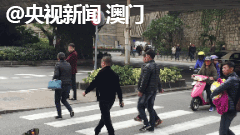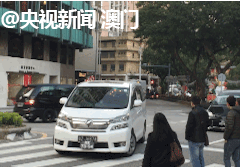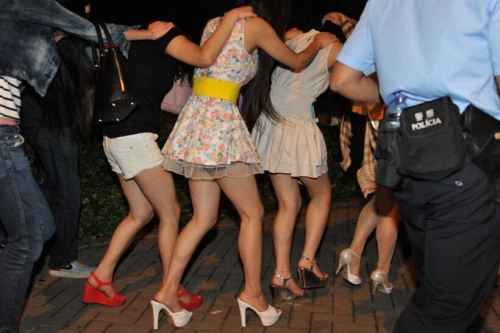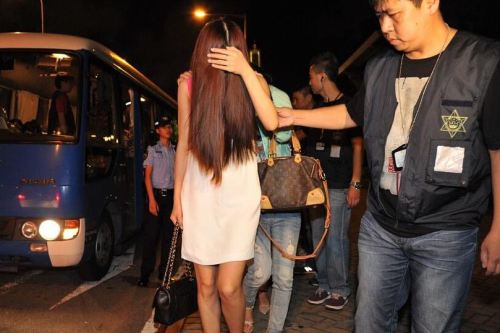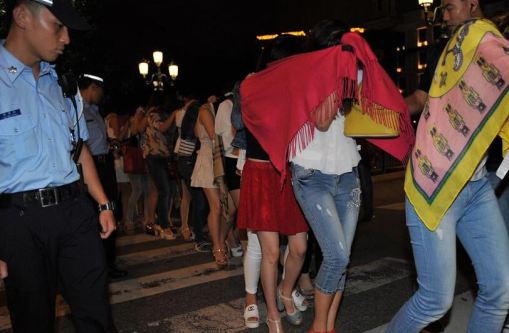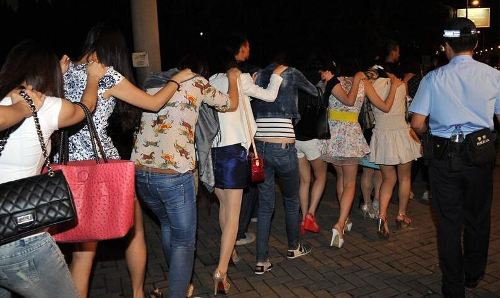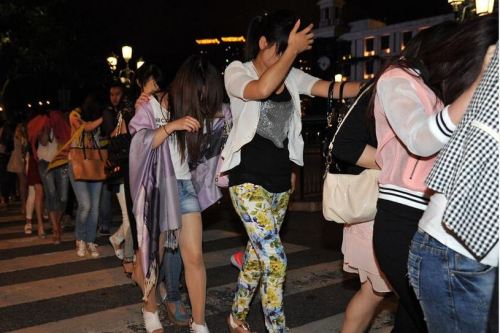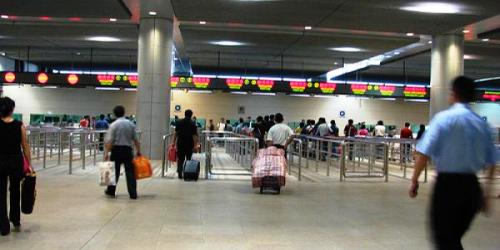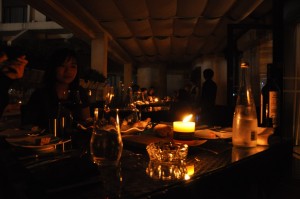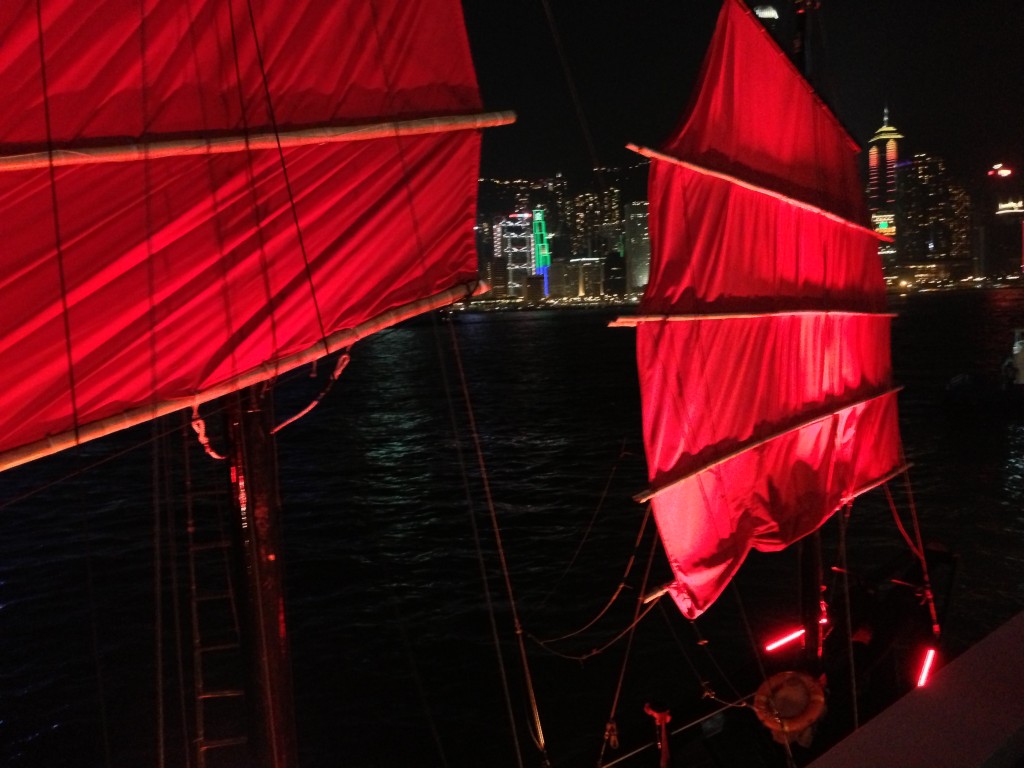Mainlanders Perplexed by Polite Traffic Etiquette in Macau
Posted: 12/23/2014 4:02 pm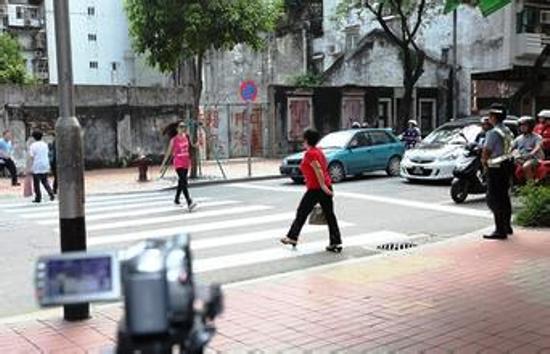 You wouldn’t think that a story about drivers voluntarily stopping for pedestrians at crosswalks and pedestrians patiently waiting at traffic lights would be news, but in China, it is.
You wouldn’t think that a story about drivers voluntarily stopping for pedestrians at crosswalks and pedestrians patiently waiting at traffic lights would be news, but in China, it is.
For the uninitiated, traffic in mainland China is not about yielding to others. Instead, the “right of way” is something given to whomever can get there first. Chinese roads are treacherous, as both aggressive driving and jaywalking are common.
That’s why this CCTV report, which was about Macau, has attracted so much attention.
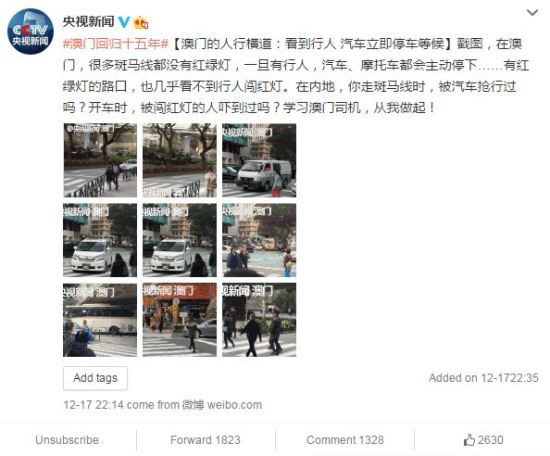 Chinese people have long said that the aggressiveness on the roads is cultural, and how Chinese people get things done in time. The fact the politeness happened in Macau – a Chinese territory filled with Chinese residents – was perplexing.
Chinese people have long said that the aggressiveness on the roads is cultural, and how Chinese people get things done in time. The fact the politeness happened in Macau – a Chinese territory filled with Chinese residents – was perplexing.
Many commentators scoffed at the Macau example, saying it wouldn’t work in the mainland:
奋斗年代-甲乙丙丁:
If it was like this on the mainland… when going to work in the morning, you’d wait until it turned dark before you were able to pass the pedestrian crossing.期盼五月天:
If it was like this on the mainland, drivers would not be able to move…獵奇腐:
Actually, it’s like this everywhere outside of China: cars will all stop for people! They’ll willingly brake and let you (pedestrians) go first! However, the problem is that there are few foreigners (in China)!!
Have you ever considered all the cars in line that are held up when the car in front stops for a pedestrian in China? What’s more, are you able to stop for all the pedestrians here?
SunsiHao丶:
Idiot. How many people are there in Macau versus how many people in mainland China? Complying to these terms would mean heavy traffic congestion.文玩珠宝聚臻堂:
This works as long as the population is low. To institute this on the mainland would to cause a traffic jam that would be backed up right to the base of the Great Wall of China.牛得光宗耀祖:
It’s not that they can’t learn. With so many people in China, there’s no way to let them go (ahead).
If you read other comments, you’ll see that the problem isn’t too many people, but the pedestrians themselves:
Vay南柯:
It’s not that they won’t learn (to follow the Macau custom), it’s that mainland Chinese pedestrians don’t have the ability to see while drivers wait at intersections (for them). Don’t think about trying to trying to take the car out for a drive in the morning. If you don’t believe me, try it for yourself.圆小圆YY:
So many people… when witnessing the morning and evening rush hour… (a legion that is) simply without end.
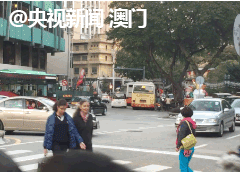 On the other hand, some say that it is the drivers that are causing the problem:
On the other hand, some say that it is the drivers that are causing the problem:
Luvian冰:
I have personally experienced the pedestrian crosswalks in Macau! Everyday while going to work an electric scooter or two nearly collides with me. You’re taking your life in your own hands when commuting to work or back home.
Others say the discrepancy is because Macau follows laws:
孙国庆:
According to traffic rules, Macau drivers have it very different than mainland drivers. Drivers must completely stop for pedestrians at a pedestrian crosswalk, or when pedestrians have the green light. As they must wait until pedestrians are one meter away from their cars before driving off, drivers can not transgress upon the safety of pedestrians. On the other hand, people who cross against red lights will still be dealt with under the law if they are hit.Noah六六:
Harsh penalties will instill good habits. (Bad driving is a sign of the) unresigned determination that typifies all mainlanders located up until the Yellow River.
Before we write off the entire mainland, many pointed out that fellow tourist town Hangzhou has drivers that are similarly courteous to those in Macau:
InitialDream请叫我SISISISmile:
It’s like this in Hangzhou, too.sunny_米:
Hangzhou is able to do this, though there are pedestrians that cross when the light is red.巧克力小宝a:
I’ve stayed in Hangzhou for an extended time. Hangzhou drivers will stop for pedestrians at crosswalks!
關馬高:
The normal compliance of traffic rules has become a system of learning by example.]1435疯小鱼:
One country, two systems…云毅巜:
No traffic lights! Either (you’re a pedestrian) that gets run over by a car, or (a driver) that gets swindled! (implying a use of the “broken vase” trick)
抱吴亦凡大腿:
Macau is rich, but what does the mainland have? A Macau passport has all types of visa exemptions, but what (benefits) does a mainland visa have?
One more thing Macau has are traffic-awareness programs that promote safety at pedestrian crossings. If mainland China wants to follow Macau’s example, they’ll need to hire these guys, and their costumes.
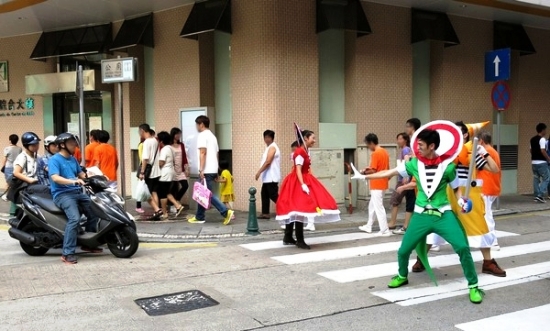 Photos: aomenshizheng, macaocp, CCTV
Photos: aomenshizheng, macaocp, CCTV

